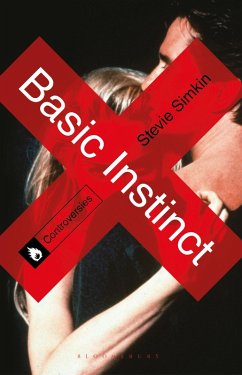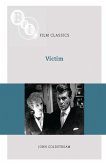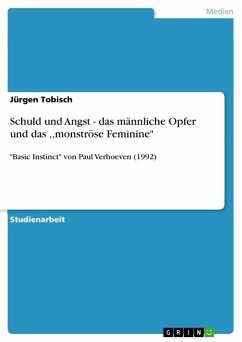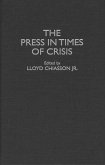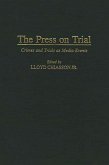Paul Verhoeven's 1992 thriller Basic Instinct - starring Michael Douglas as a police detective and Sharon Stone as the femme fatale Catherine Tramell - was one of the first mainstream 'erotic thrillers', a film which shifted the boundaries for graphic representations of sex in Hollywood cinema. It remains a significant milestone in film censorship and controversy. In his fascinating study, the first in-depth account of the film, Stevie Simkin explores the unrest and protest that Basic Instinct sparked in the gay, lesbian and feminist communities in the US, incensed by what they saw as the script's homophobia and misogyny.
Simkin considers the social and cultural context in which Basic Instinct was made, examining the film's troubled production history, the battles with censors, and its reception. He offers a number of readings of the movie, looking at its representation of bisexuality and the depiction of a 'transgressive' female protagonist. He also focuses on key sequences, including the infamous interrogation scene, and details the cuts demanded by the censors, resulting in different UK and US versions. In conclusion, Simkin considers the legacy of Basic Instinct, and its enduring effect on media representations of the violent woman.
STEVIE SIMKIN is Reader in Drama and Film at the University of Winchester, UK. His publications include work on cult television, popular music, and Renaissance drama. He is the author of, amongst other works, A Preface to Marlowe (1999), Revenge Tragedy: A New Casebook (2001), Early Modern Tragedy and the Cinema of Violence (2005), and, also in the Controversies series, a book on the Peckinpah film, Straw Dogs.
Simkin considers the social and cultural context in which Basic Instinct was made, examining the film's troubled production history, the battles with censors, and its reception. He offers a number of readings of the movie, looking at its representation of bisexuality and the depiction of a 'transgressive' female protagonist. He also focuses on key sequences, including the infamous interrogation scene, and details the cuts demanded by the censors, resulting in different UK and US versions. In conclusion, Simkin considers the legacy of Basic Instinct, and its enduring effect on media representations of the violent woman.
STEVIE SIMKIN is Reader in Drama and Film at the University of Winchester, UK. His publications include work on cult television, popular music, and Renaissance drama. He is the author of, amongst other works, A Preface to Marlowe (1999), Revenge Tragedy: A New Casebook (2001), Early Modern Tragedy and the Cinema of Violence (2005), and, also in the Controversies series, a book on the Peckinpah film, Straw Dogs.

